Research with a Vision for the Future: Five Postdoctoral Projects at LSIWC
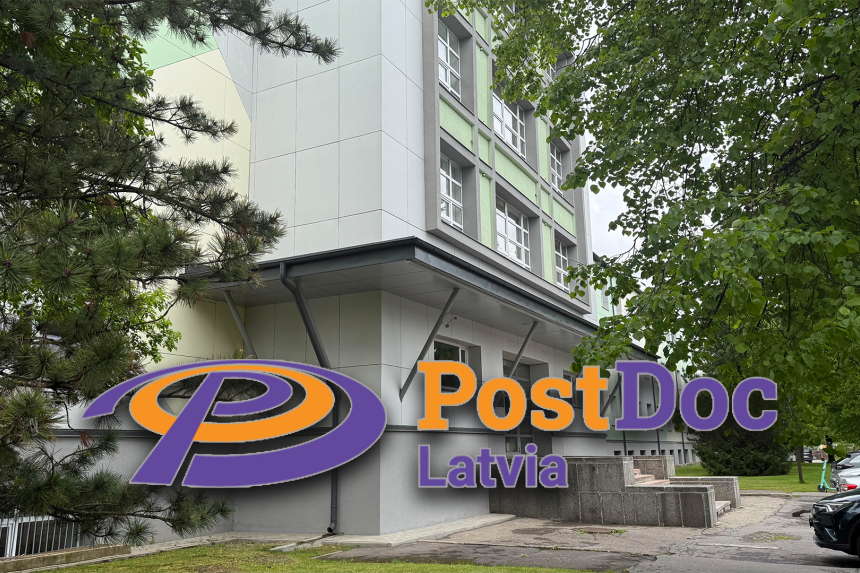
Sustainable materials, smart sorbents, valuable sugars from wood, biochar, and carbon electrodes from biomass – these are the current research directions pursued by five postdoctoral researchers at the Latvian State Institute of Wood Chemistry. These projects are part of a broader goal focused on green technology-based bioresources that are efficient, environmentally friendly, and competitive.
Get to know each of them and discover how their ideas can become real-world solutions!
Ralfs Pomilovskis: Two-Component Bio-Resins for the Automotive and Construction Sectors
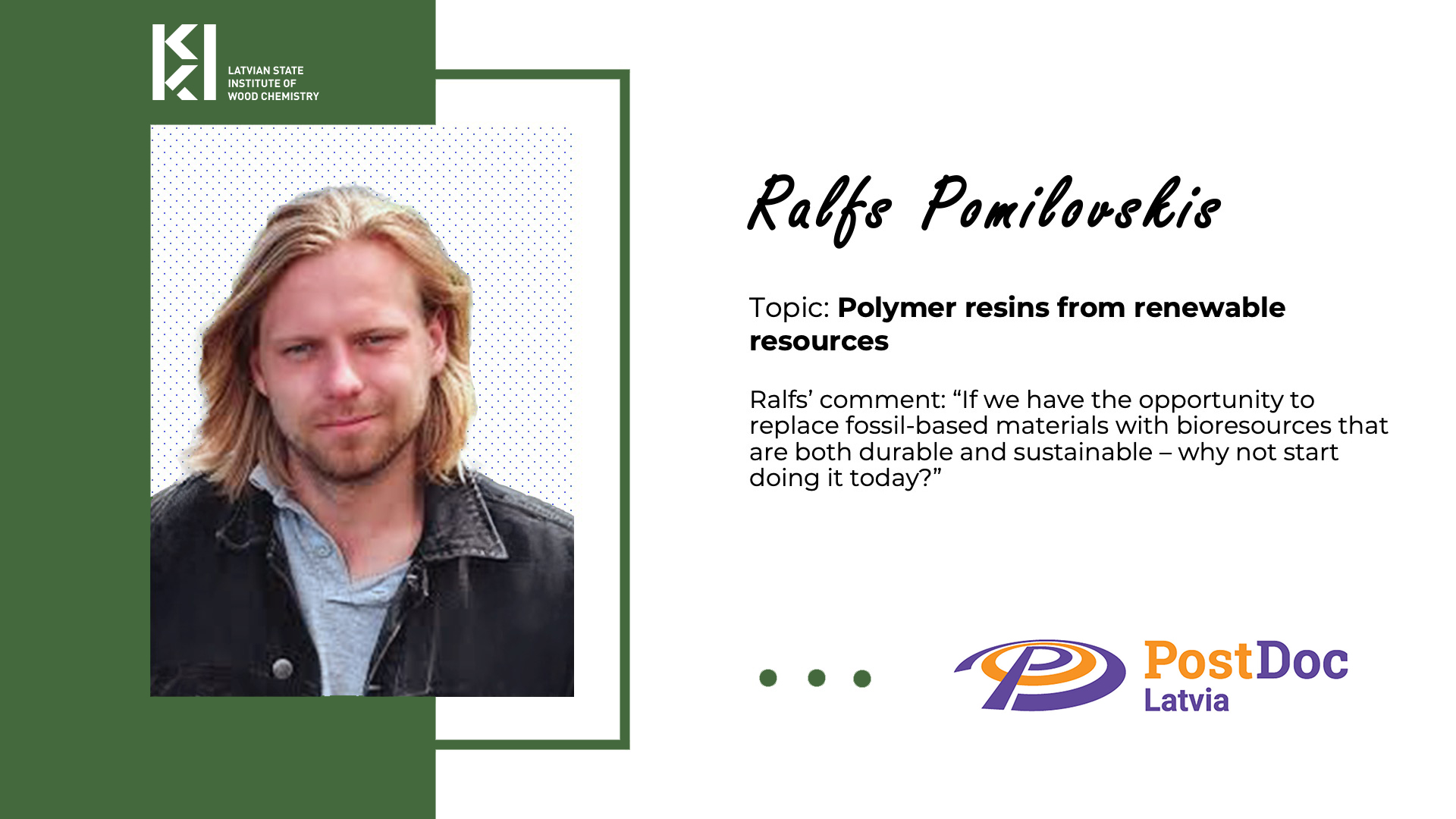
Project description: SuReComp
Execution time: 01.07.2025.–30.06.2028.
Ph.D. Ralfs Pomilovskis is developing two-component thermosetting polymer resins based on sustainably sourced carboxylic acids. These resins will be combined with natural fibers to form composite materials that could replace conventional plastic and fiberglass solutions in the automotive and construction industries. It is estimated that the final materials will consist of up to 80% renewable raw materials.
Daniela Godiņa: Sorbents from Birch Bark Extracts – The Future of Analytical Chemistry
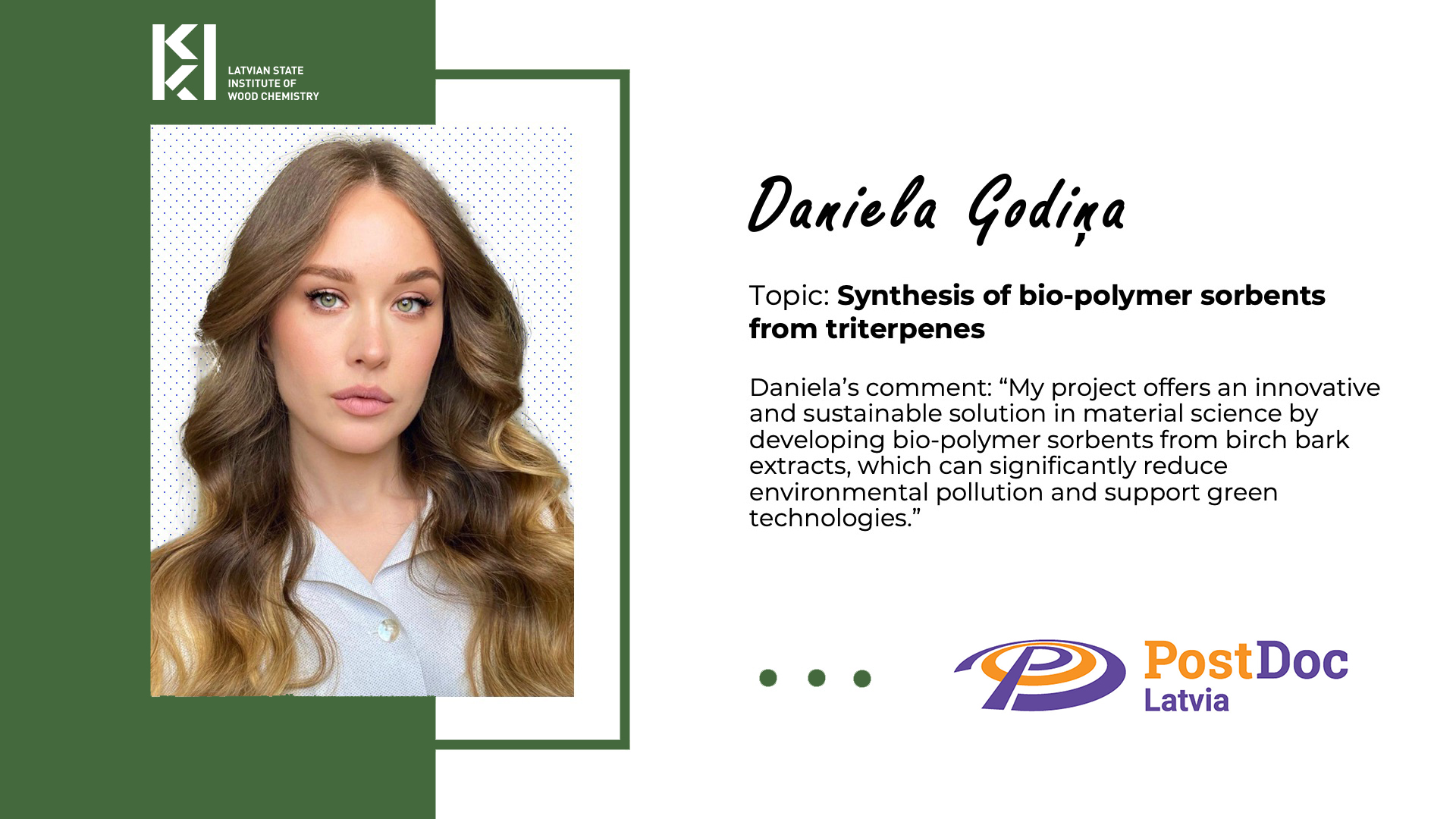
Project description: BirchSorb
Execution time: 01.07.2025.–30.06.2028.
Ph.D. Daniela Godiņa is synthesizing bio-based polymer sorbents from birch bark extractives (triterpenes), using them as stationary phases for separation and purification processes, especially in liquid chromatography and solid-phase extraction. Research on bio-based polymer sorbents is highly relevant as they offer an environmentally friendly and biodegradable alternative to traditional sorbents. Current focus lies on optimizing properties such as surface area and porosity.
Kristīne Meile: Valuable Sugars from Wood Smoke
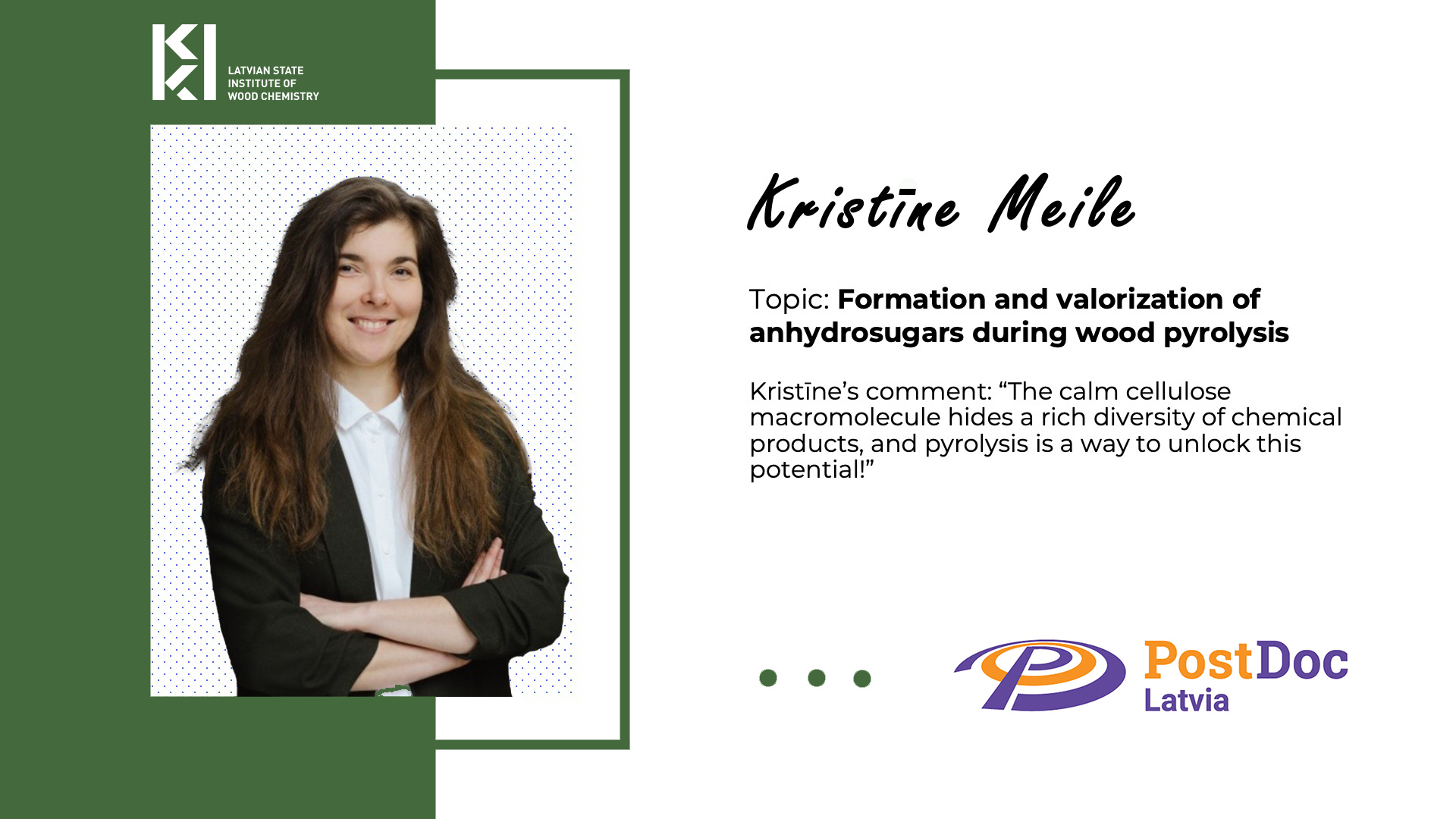
Project description: SugarPot
Laiks: 01.07.2025.–30.06.2028.
Dr.chem. Kristīne Meile is studying how wood biomass forms anhydrosugars during pyrolysis – compounds with potential value in the chemical industry. Using analytical pyrolysis and GC-MS methods, she will determine the formation mechanisms of different anhydrosugars and apply this knowledge to obtain specific chemical compounds. The project’s goal is to improve and purify liquid pyrolysis products to promote the use of renewable feedstocks in the chemical industry.
Prans Brazdausks: Production of furfural and fatty acids from oat husks
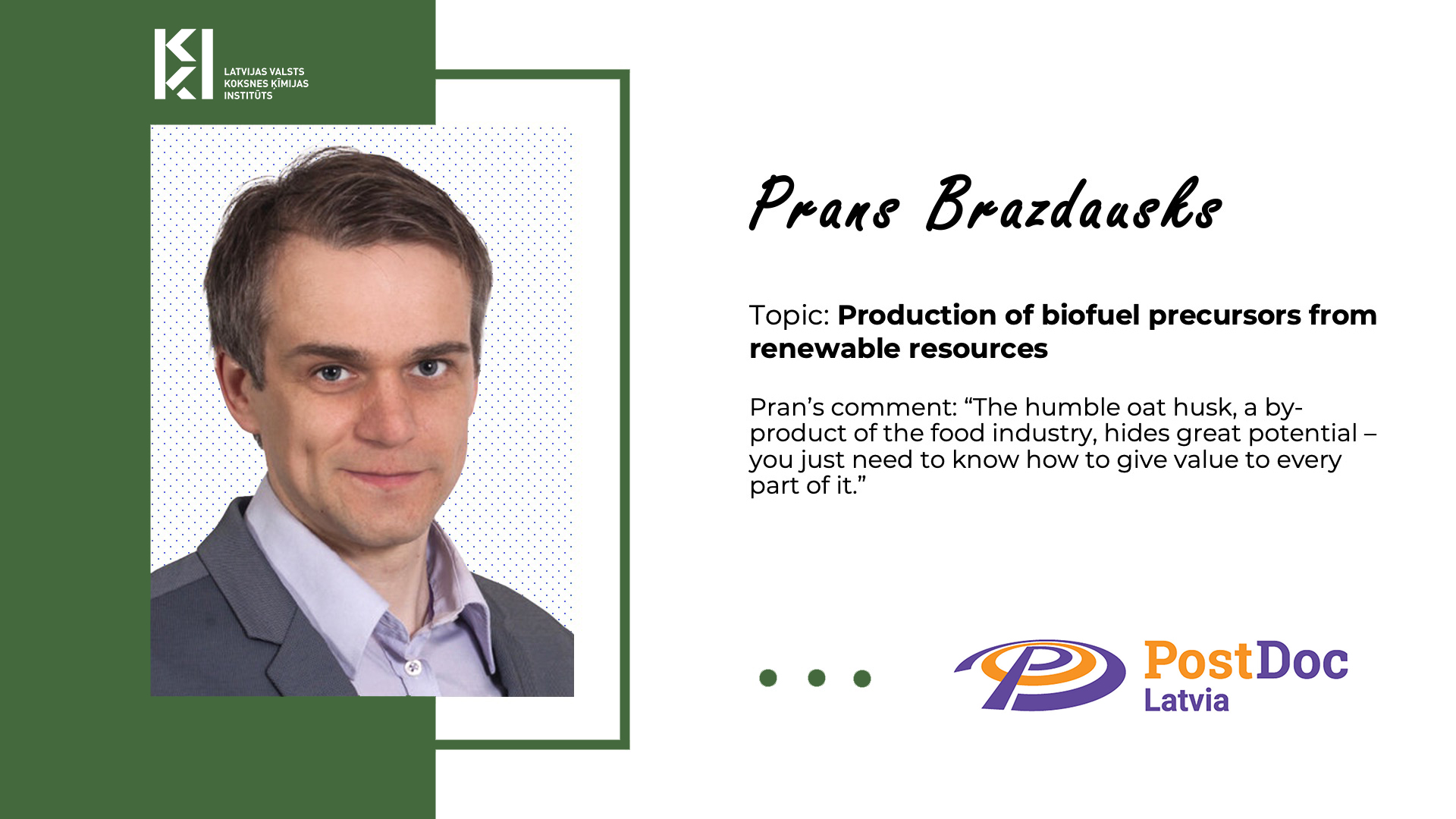
Project description: StexFur
Laiks: 01.07.2025.–30.06.2028.
Dr.sc.ing. Prans Brazdausks is exploring how to selectively extract C5 carbohydrates from oat husks using a catalytic steam explosion process, while simultaneously improving the efficiency of enzymatic hydrolysis to obtain glucose from the cellulose-rich solid residue. In subsequent processing steps, these extracted products are converted into furfural and fatty acids – compounds considered valuable feedstocks for biofuel production. Functionalized lignin-based biochar, derived from the solid residue after enzymatic hydrolysis, is used for furfural production. This is an excellent example of how seemingly insignificant food industry by-products can serve as raw materials for a multi-step biorefinery process.
Ance Pļavniece: Carbon Electrode Materials from Sugar Solution
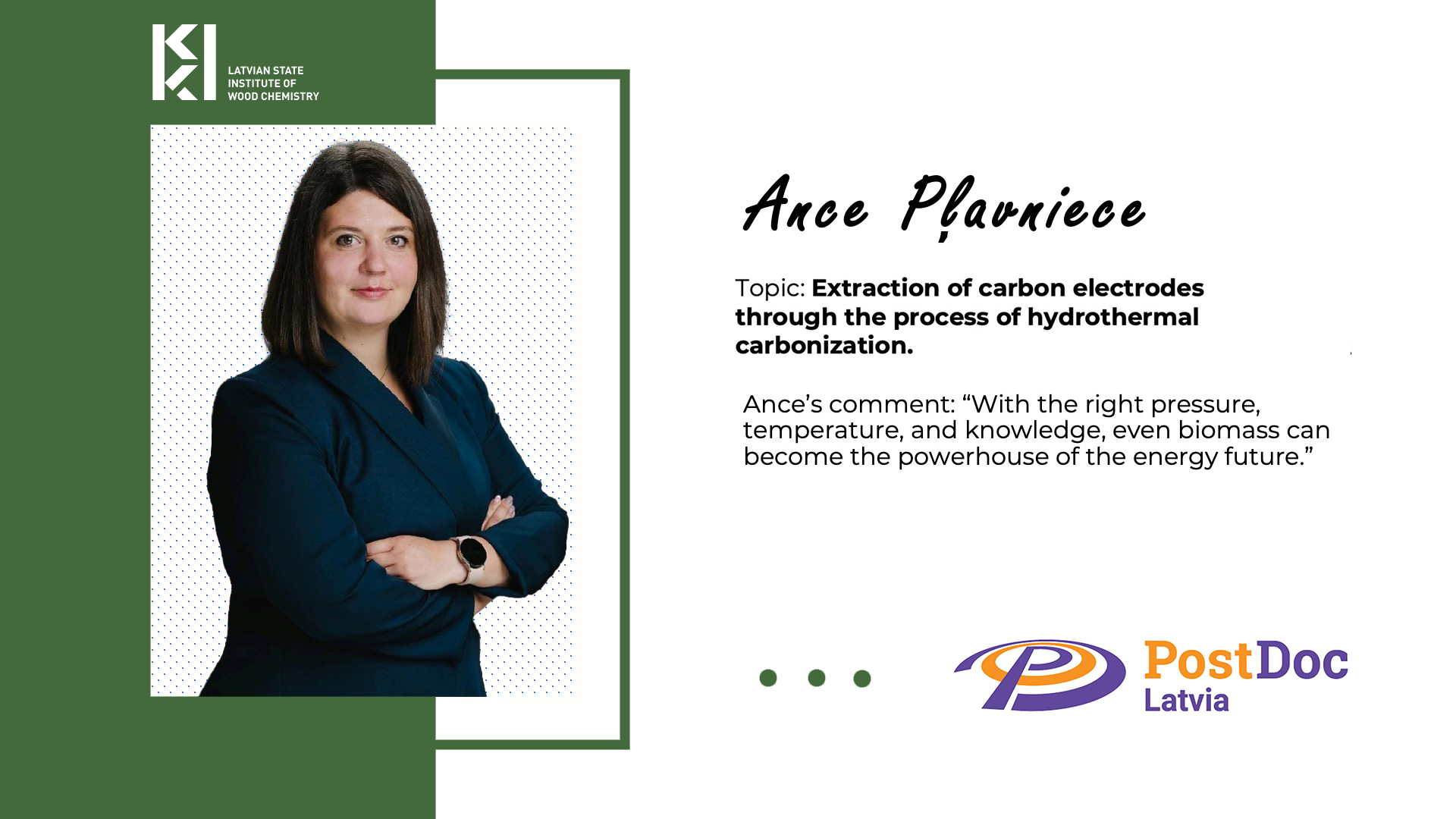
Project description: HTCelect
Execution time: 01.04.2025.–31.03.2028.
The main goal of Ph.D. Ance Pļavniece’s project HTCelect is to simultaneously obtain high-value solid and liquid products by hydrothermally processing biomass carbohydrates. The solid products will be new types of carbon electrode materials, while the liquid by-products will be studied as resources for the chemical industry. Using wood-derived lignocellulosic sugars is a novel approach for producing innovative carbon materials, which through thermal processing can yield new efficient materials for energy applications.
A Targeted Investment in Scientific Development
These five postdoctoral projects currently underway at LSIWC demonstrate the institute’s ability to attract and foster young scientific talent. Each project addresses current challenges in bioeconomy, materials science, and environmental technologies, while also developing the individual researchers’ skills and strengthening international cooperation.
Although the projects are still in their early stages, it is already clear – their goals are ambitious, scientifically grounded, and societally relevant. We look forward to following their progress and results over the next three years.